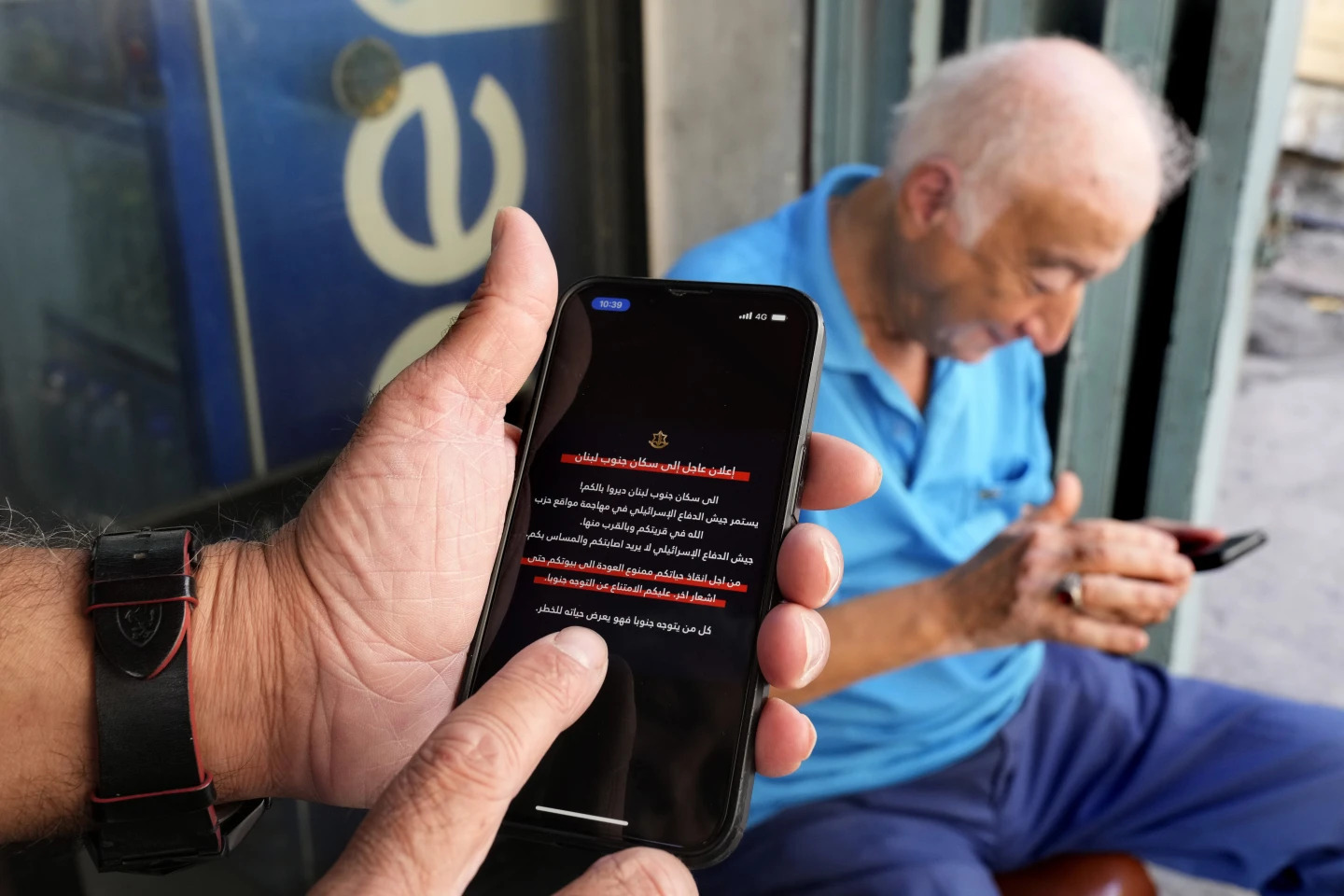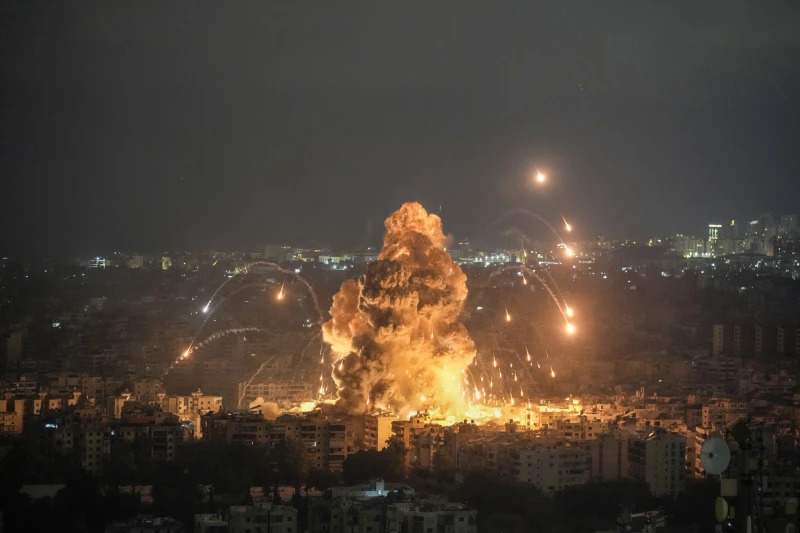(CLO) Late at night is the time when Lebanese people are most confused because that is often when the Israeli army issues warnings to evacuate buildings or residential areas to avoid airstrikes.
Recently, Moein Shreif was awakened at 3 a.m. by a call from a neighbor warning him that Israel planned to attack a nearby building in a middle-class southern suburb of Beirut where Hezbollah has a strong presence.
Northeast of Beirut, in the Bekaa Valley, Israel recently issued a warning to residents to stay at least 1,000 meters away from their town or village if they are in or near a home with Hezbollah weapons.
Shreif, his wife and their three children quickly fled the multi-story apartment building and drove away. Minutes later, an explosion was heard. When they returned, their apartment building and the one next door were reduced to rubble, still smoldering.

Mobile phone alerts have been issued asking residents of southern Lebanon not to return home until further notice. Photo: AP
Shreif said his neighbor called him about five minutes after the Israeli military issued the warning on social media X. Without that call, his family might not be alive.
“I didn’t even have time to change my clothes. I didn’t take anything out of the house,” said Shreif, a popular Lebanese folk and pop singer, still wearing his pajamas from the night before.
Israel and Hezbollah have been attacking each other almost daily since the start of the war in Gaza. Hezbollah says it will fire rockets at Israel until a ceasefire in Gaza is reached; Israel says it is fighting to stop those attacks, which have forced tens of thousands of Israelis to flee their homes.
But it wasn't until late last month, when Israel dramatically expanded its air campaign against Hezbollah, that Lebanese began receiving regular air strike warnings. Many organizations say Israel's warnings are incomplete and sometimes misleading.
According to Imad Kreidieh, head of Lebanon's telecommunications company, on September 23, Israel made 80,000 calls to Lebanon, which appeared to be recorded warnings of upcoming airstrikes.
The calls caused panic. Schools closed. People rushed home early after work. It ended up being Lebanon’s deadliest day of airstrikes in decades, with more than 500 people killed. Women and children accounted for about 25 percent of the deaths.
Since then, Israel has issued warnings on social media almost daily.
On October 1, 27 villages in southern Lebanon were told to evacuate north of Mr. Awali, dozens of kilometers away. “Save your life,” the instructions said.
That was when Salam, a 42-year-old mother of two, fled her village of Ain Ebel to Beirut to stay with relatives. But so far, Ain Ebel has not been bombed, although surrounding villages have. Salam remains confused and angry that her village was evacuated.

Smoke rises from an Israeli airstrike in the southern suburbs of Beirut, Lebanon, on October 6. Photo: AP
Northeast of Beirut, in the Bekaa Valley, Israel recently issued a warning to residents to stay at least 1,000 meters away from their town or village if they are in or near a home with Hezbollah weapons.
Initially, most of the Israeli military's warnings appeared on the Arabic-language social media accounts of its spokesmen. They then began to appear more frequently on Lebanese media networks.
The warnings instruct people to leave their homes “immediately,” followed by a series of overnight strikes that often cause damage in areas outside the warnings. Israel says it is targeting Hezbollah fighters, weapons or other assets belonging to the group. Warnings are rarely issued before daytime attacks.
“Calls for residents of nearly 30 villages to leave ‘immediately’ are ineffective, and it would be illegal to assume that civilians who do not leave the area are combatants,” said Ramzi Kaiss, a researcher at Human Rights Watch in Beirut.
Kaiss said Israel, which typically gives 30 to 90 minutes warning before launching airstrikes, has an obligation to protect civilians who refuse to evacuate or are unable to do so themselves.
Amnesty International also criticized Israel's warnings to evacuate entire towns and villages. "This raises questions about whether this is intended to facilitate mass displacement," its secretary general, Agnes Callamard, said on October 10.
Hoai Phuong (according to AP)
Source: https://www.congluan.vn/nguoi-dan-lebanon-hoang-mang-truoc-nhung-canh-bao-khong-kich-cua-israel-post316622.html


![[Photo] Ready for the top competitions of Vietnamese table tennis](https://vphoto.vietnam.vn/thumb/1200x675/vietnam/resource/IMAGE/2025/5/18/9c547c497c5a4ade8f98c8e7d44f5a41)

![[Photo] Party and State leaders attend the special art program "You are Ho Chi Minh"](https://vphoto.vietnam.vn/thumb/1200x675/vietnam/resource/IMAGE/2025/5/18/6895913f94fd4c51aa4564ab14c3f250)

![[Photo] Many young people patiently lined up under the hot sun to receive a special supplement from Nhan Dan Newspaper.](https://vphoto.vietnam.vn/thumb/1200x675/vietnam/resource/IMAGE/2025/5/18/6f19d322f9364f0ebb6fbfe9377842d3)





























































































Comment (0)